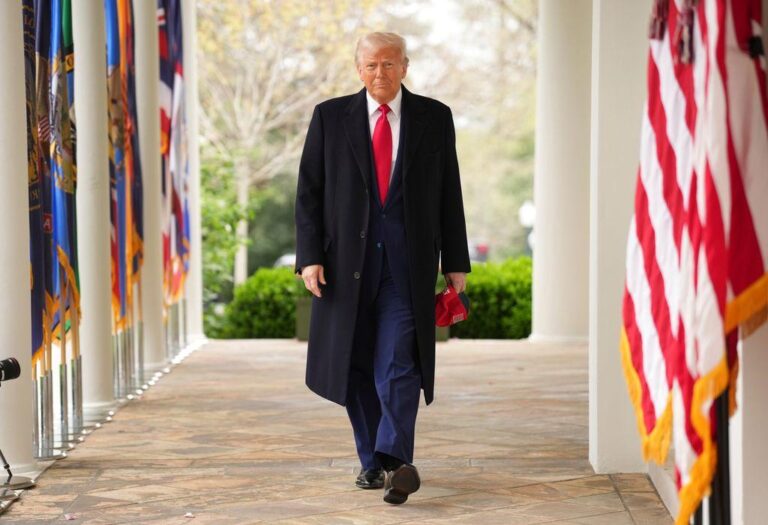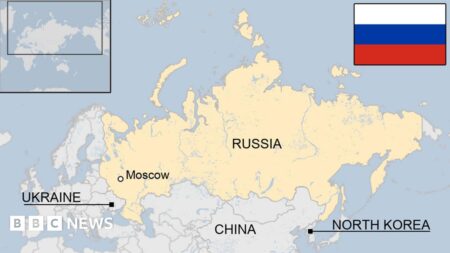In recent months, a controversial trend has emerged in both the United States and Germany, where authorities appear to be employing similar strategies to suppress pro-Palestine activism. A new video report from Drop Site News delves into the parallels between the actions of the Trump management and the German government, both of which have faced criticism for their handling of anti-Israel demonstrations and the broader pro-Palestine movement.As activism gains momentum in response to the ongoing Israeli-Palestinian conflict, questions arise about freedom of speech, political dissent, and the implications of government policies aimed at criminalizing protest actions. This article explores the tactics used,the legal ramifications for activists,and the broader societal impacts in both nations as they navigate this contentious landscape.
Analyzing the Parallels: Trump’s Tactics vs. Germany’s Approach to Pro-Palestine Activism
In analyzing the tactics employed by Donald Trump and Germany regarding pro-Palestine activism, it becomes evident that both utilize a strategy rooted in delegitimization and criminalization. Trump’s administration consistently labeled various pro-Palestine movements as anti-Semitic, thereby framing dissent as a moral failure rather than a legitimate political stance. This tactic sought to mobilize public sentiment against activism, painting advocates as extremists rather than providing a platform for discourse. Similarly, Germany has cracked down on pro-Palestinian demonstrations, utilizing legislative measures that frame such activism within the parameters of hate speech, effectively silencing critics and stifling open dialog on the Israeli-Palestinian conflict. This parallel approach reflects a broader trend among state actors opting for suppression over engagement.
The implications of these tactics are profound and multifaceted. Both Trump and Germany’s approaches reveal a growing anxiety over the rising popularity of pro-Palestine sentiment in the West. This has led to a concerted effort to discredit activists through various means, including surveillance and punitive measures. The consistent public messaging from both politicians focuses on the necessity to uphold national integrity, emphasizing the following points:
- Framing of activism as Threatening: Both leaders depict pro-Palestine actions as potential threats to societal cohesion.
- Legislation Targeting free Speech: Legal frameworks have been adapted to classify legitimate expressions of solidarity as unlawful.
- Media Manipulation: There is an evident strategy to control the narrative within news media, often portraying activists in a negative light.
Legal Frameworks Under Scrutiny: How Both Leaders Justify Criminalization Efforts
The recent criminalization efforts in the United States and germany reflect a growing trend where government leaders justify stringent laws against pro-Palestine activism. Both Donald Trump and German Chancellor Olaf Scholz have framed their positions within the context of national security and public order. Their justifications share a common narrative that links activism for Palestinian rights to extremism and anti-Semitism, appealing to public fear and historical sensitivities regarding national identity. under this umbrella, their administrations have been rapid to label dissenting voices as threats, thereby legitimizing a crackdown on civil liberties in the name of maintaining stability.
This legal framework draws on several key elements to support their case for criminalization. Both leaders utilize rhetorical strategies aimed at consolidating public support, which include:
- Framing activists as radicals: Portraying pro-Palestine activism as a gateway to violence.
- Emphasizing security threats: Connecting movements to larger extremist networks.
- Citing historical precedents: Referencing past traumas linked to anti-Semitism to resonate emotionally with constituents.
Furthermore,the implementation of policies that impede the right to protest and stifle free speech has manifested in various legislative proposals. One notable exmaple can be seen in the proposed measures in both countries:
| country | Proposed Measures | Justification |
|---|---|---|
| United States | Increased surveillance of protests | Preventing domestic terrorism |
| Germany | Ban on pro-Palestine demonstrations | Maintaining public order |
In both cases,leaders emphasize their commitment to protecting their respective nations,though critics argue that these actions represent a troubling distortion of justice that risks undermining the foundational principles of democracy. The overlap in strategies suggests a coordinated effort to reshape how dissent is perceived, raising critical questions about the future of activism and the protection of civil rights in Western democracies.
Impact on Civil Liberties: The Consequences for Free Speech and Activism
The recent crackdown on pro-Palestine activism, spearheaded by governmental powers in various countries including the U.S.and Germany, raises significant concerns regarding civil liberties, notably free speech. Activists find themselves increasingly vulnerable to surveillance and legal repercussions simply for expressing their support for Palestinian rights. This shift mirrors historical patterns where governments deploy legal frameworks to silence dissent. In an era where many view free speech as an absolute right,the justification for criminalizing political expression under the guise of national security or public order poses grave implications. These developments not only threaten the essence of democratic engagement but also create a chilling environment where individuals self-censor out of fear of reprisal.
Moreover, the systematic targeting of pro-palestine groups reveals a broader strategy aimed at suppressing activism that challenges mainstream narratives. As freedoms diminish, the repercussions are felt not just by those directly affected but also by the wider community of activists advocating for various causes, whether related to racial justice, environmental issues, or human rights. Key consequences include:
- Increased Surveillance: Activists face heightened monitoring, dissuading them from organizing or mobilizing.
- Legal reprisals: Potential prosecution for participating in protests or online discussions, leading to a fear of engagement.
- Stigmatization: Supporting certain movements may lead to social ostracization, impacting personal and professional relationships.
A Call to Action: Strategies to Resist Government Overreach and Support Advocacy Efforts
As governments around the world implement aggressive measures to stifle dissent and criminalize peaceful activism, it becomes crucial for individuals and organizations to galvanize their efforts to protect rights and promote advocacy. Engaging effectively means embracing a multitude of strategies that collectively push back against governmental overreach. Advocates must prioritize community engagement by building local coalitions that emphasize solidarity and mutual support. This can include:
- Hosting workshops to educate members about legal rights and self-defense strategies.
- Formulating resource networks that provide access to legal aid and financial assistance for those targeted by government actions.
- Establishing awareness campaigns through social media, art, and public demonstrations to amplify voices and concerns.
Moreover, it’s essential to leverage digital platforms to widen the reach of advocacy efforts. Using technology, activists can mobilize broader coalitions and share information rapidly.A proactive approach includes petitioning local leaders and representatives to express collective demands and hold them accountable.Building a extensive understanding of the political climate helps advocates respond swiftly to emerging threats,fostering an environment where negotiating for rights becomes a sustained effort. To illustrate this, consider the following table that outlines key action items and their potential impacts:
| Action Item | Potential Impact |
|---|---|
| Legal workshops | Empowerment and preparedness |
| Public demonstrations | Increased visibility and media attention |
| Online petitions | Political pressure and engagement |
key Takeaways
the parallels drawn between Donald Trump’s administration and Germany’s approach to pro-Palestine activism reveal a troubling trend in how Western nations respond to dissenting voices. As both leaders employ legal and social tactics aimed at suppressing advocacy for Palestinian rights, the implications for free speech and political activism cannot be overstated. The strategies outlined in this analysis highlight a growing concern over the limits of acceptable discourse and the potential consequences for those who dare to challenge the status quo. As the global conversation around Palestine continues to evolve, it remains crucial for activists, policymakers, and citizens alike to remain vigilant and informed about these developments. Understanding the narratives and tactics being used to silence opposition is essential for fostering a climate where diverse perspectives can flourish without fear of retribution. Thank you for engaging with this critically important dialogue.




